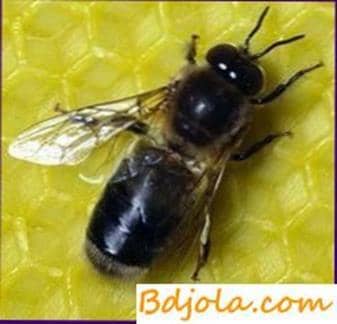
In our country there are bees of several breeds, of which the most common are Central Russian forest. They dwell in the Northwest, Belorussia, the central regions of the country, the Urals, Siberia, the Far East. Here they are successfully bred, and in the forests they are found in the wild.
In color they are dark, slightly brownish, well pubescent, which is very important for living in a cold climate. The hairs covering their body, the longest – up to 0.5 mm.
They are larger than other bees, in particular southern ones. It’s even noticeable by eye. They have a larger volume of honey ventricle – a reservoir where they suck nectar, and wider the area of wax-excretory glands. But this is very important for their life and is valuable for practical beekeeping. Central Russian forest bees can collect and bring more honey for the voyage and build more honeycombs than other bees. Quickly update their nests, many build new honeycombs.
Industriousness of the Central Russian forest bees is excellent. They are vigorous and versatile in the use of honey collection, quickly mobilize to any honey plant. Perfectly work literally on all woody, shrubby and herbaceous plants that produce nectar and pollen. Especially a lot of honey is harvested from strong nectarones. Srednerusskiy bees have record medosbory with lime and kipreya.
Dark forest bees are rightfully considered the best pollinators of buckwheat. When this valuable cereal crop blossoms, they literally swarm over it.
Central Russian bees winter well in severe climatic zones – in Siberia, the Urals, in the northern regions. These are the most winter-hardy bees. They withstand great frost. In the spring, families develop and grow rapidly.
These bees are thrifty, economical, reliably protect their supplies. Even with a poor honey flora from them, you can get honey. But they are quite rude.
Purebred forest Middle Russian bees – this is our national wealth. In the wild they are still found in the Siberian, northern and western forests, along the Urals, in Bashkiria. To save them, in places where they live, the importation of bees of other breeds is prohibited. Central Russian forest bees are angry. You have to work with them skillfully.
Мед и лимонник. Когда пчелам давать сахарный сироп.
Breeds of bees